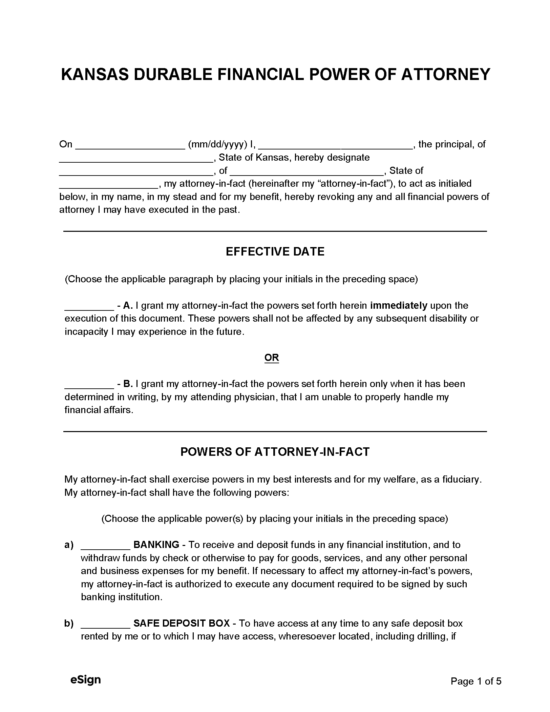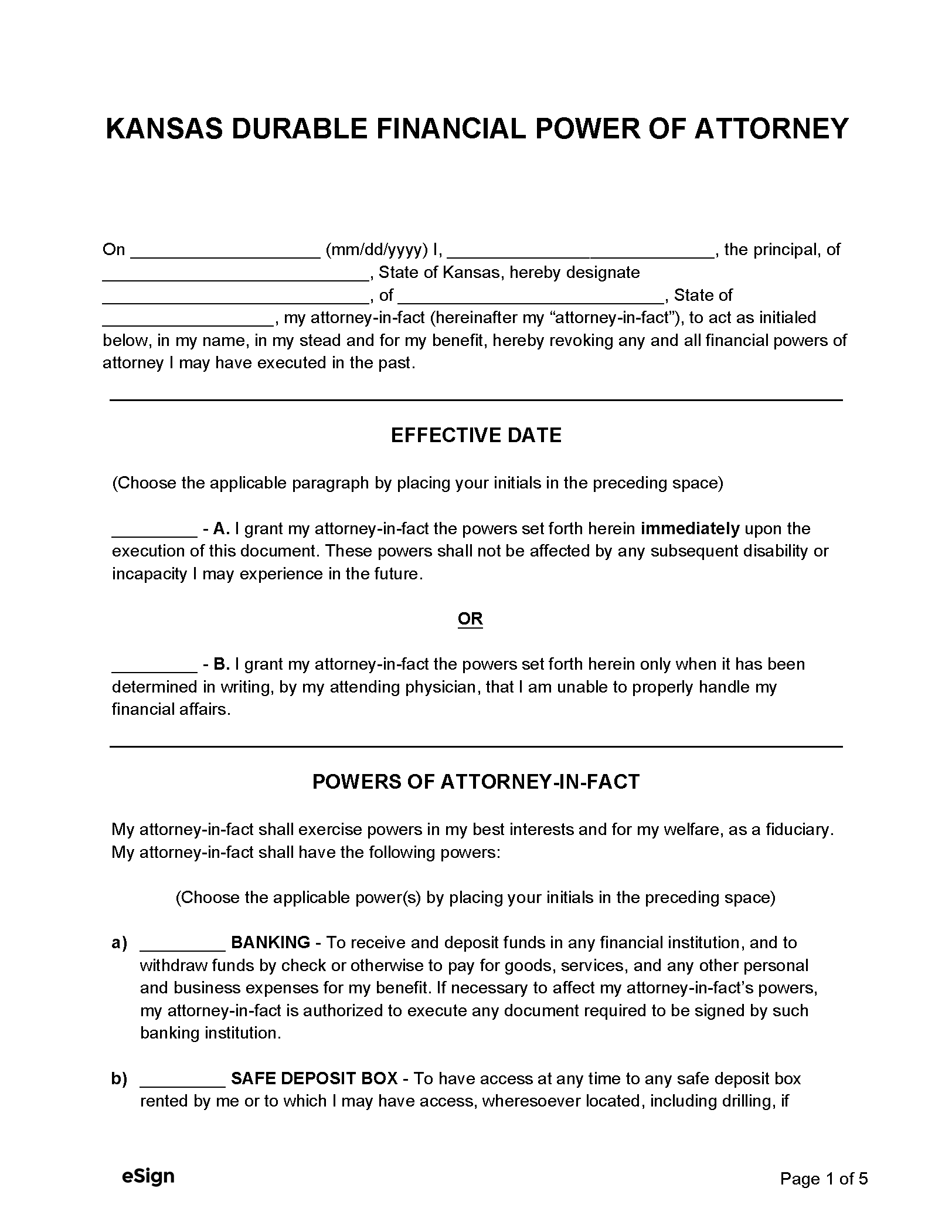Signing Requirements
The principal’s signature must be acknowledged before a notary public.[1]
Power of Attorney (Preview)
Legal Definition
“Durable power of attorney” means a written power of attorney in which the authority of the attorney in fact does not terminate in the event the principal becomes disabled or in the event of later uncertainty as to whether the principal is dead or alive and which complies with subsection (a) of K.S.A. 58-652, and amendments thereto, or is durable under the laws of any of the following places:
(2) the law of the place of the residence of the principal when executed; or
(3) the law of a place designated in the written power of attorney if that place has a reasonable relationship to the purpose of the instrument.[2]

